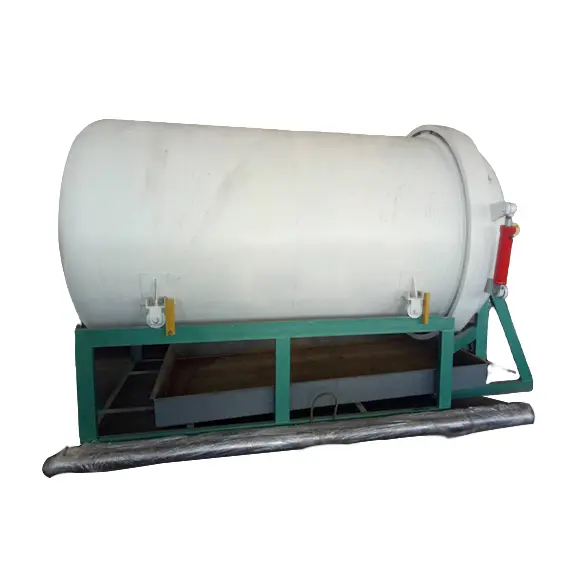Nov . 09, 2024 23:42 Back to list
Refined Equipment for Extracting Black Seed Oil Products Efficiently
The Benefits and Insights into Black Seed Oil Refined Machine Products
Black seed oil, derived from the seeds of the Nigella sativa plant, has garnered attention in recent years for its numerous health benefits and applications. The oil is renowned for its therapeutic properties, which range from anti-inflammatory and antioxidant effects to potential roles in enhancing immune functions. However, the process through which black seed oil is refined plays a crucial role in preserving these benefits and ensuring product quality. In this article, we will explore the significance of refined black seed oil, the machinery involved in its extraction and refinement, and the overall benefits of these refined products.
The Importance of Refinement
Refined black seed oil is essential in maximizing the oil's health benefits while ensuring its safety and shelf-life. The refinement process typically involves several stages, including filtration, deodorization, and decolorization, which help eliminate impurities, strong odors, and any unwanted flavors. This refinement not only enhances the oil's aesthetic appeal but also improves its stability and usability in various applications.
Unrefined black seed oil may contain a higher concentration of free fatty acids and other compounds that may not be desirable in certain products. The refined version is more versatile, making it suitable for culinary, cosmetic, and medicinal purposes without the overpowering taste or smell that unrefined options might present.
Machinery in the Refining Process
The machinery utilized in the production of refined black seed oil is diverse and plays a pivotal role in the overall quality of the product. Key machines include
1. Oil Expellers These machines are designed to extract oil from the seeds without the use of excessive heat, preserving many of the nutrients. The process typically involves pressing the seeds to separate the oil from the solids. 2. Filtration Systems After extraction, the oil undergoes filtration to remove particulate matter and impurities. Advanced filtration systems, such as leaf filters and pressure filters, are utilized to ensure a high-quality product.
3. Deodorizing Equipment Deodorization is critical in refining black seed oil. This step uses heat and vacuum systems to remove volatile compounds that contribute to odor, resulting in a more neutral oil that appeals to a broader market.
black seed oil refined machine products

4. Color Removers The oil is further treated to eliminate color pigments that may affect consumer acceptance. Techniques such as adsorption with activated carbon or bleaching earth can be employed to clarify the oil.
Benefits of Refined Black Seed Oil Products
The demand for refined black seed oil products continues to rise due to their myriad benefits
1. Health Benefits Refined black seed oil can support cardiovascular health, reduce inflammation, and enhance skin health due to its essential fatty acids and antioxidants.
2. Culinary Uses The neutral flavor of refined black seed oil makes it an excellent choice for cooking, salad dressings, and marinades, allowing consumers to incorporate its benefits easily into their diets.
3. Cosmetic Applications With its moisturizing properties, refined black seed oil is a prized ingredient in skincare products, offering nourishment and hydration without clogging pores.
4. Aromatherapy and Wellness Its pleasant scent, once refined, makes it suitable for use in aromatherapy and other wellness products.
Conclusion
In conclusion, the refined black seed oil, produced through advanced machinery and techniques, stands out as a vital product celebrated for its extensive applications and benefits. As consumers become more aware of the advantages of incorporating such oil into their lifestyles, the market for refined black seed oil products is predicted to continue to grow, bolstered by ongoing innovations in extraction and refinement processes. By understanding and embracing these products, individuals can unlock their potential for improving health and well-being.
-
HP 120 Cold Oil Press-Hebei Huipin Machinery|Oil Extraction, Cold Press
NewsAug.07,2025
-
HP 120 Model Cold Oil Press-Hebei Huipin Machinery|Cold Oil Extraction, High Efficiency
NewsAug.07,2025
-
HP 120 Model Cold Oil Press - High-Efficiency Oil Extraction&Automated Processing
NewsAug.07,2025
-
Safflower Oil Press Service | Expert & Efficient Solutions
NewsAug.07,2025
-
HP 120 Model Cold Oil Press - Hebei Huipin Machinery | Advanced Oil Extraction Technology
NewsAug.06,2025
-
HP 120 Cold Oil Press-Hebei Huipin Machinery|Cold Pressing, Oil Extraction
NewsAug.06,2025
